H2020 and COST
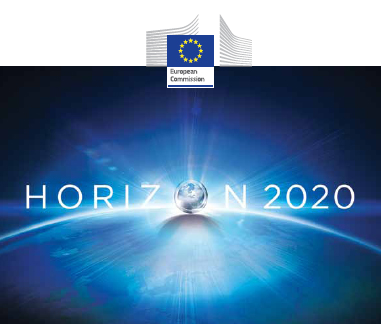
ECTRI supports several H2020 projects, in which ECTRI members are involved:
![]() WE-TRANSFORM “Automation and Connected Mobility Impact on Employment in the Transportation Sector”
WE-TRANSFORM “Automation and Connected Mobility Impact on Employment in the Transportation Sector”
Automation in transport and digitalisation will affect both transport users and its workforce. Currently, there is a knowledge gap regarding the repercussions across the transport chain. The EU-funded WE-TRANSFORM project will combine expertise across all facets of transport and analytical tools and apply a participatory approach, using collective intelligence, to generate an evidence-based and action-oriented agenda to tackle the challenges connected to the effects of automation on the transport labour force, among other things. To do this, the project will establish a collaborative platform for stakeholders that will produce user-friendly and shareable knowledge on automation impacts on transport labour.
More information: https://wetransform-project.eu/; https://cordis.europa.eu/project/id/101006900
ECTRI Members POLITO (coordinator, Italy) and TTI (Latvia) are partners in the consortium. ECTRI is supporting WE TRANSFORM project as Stakeholder Forum member.
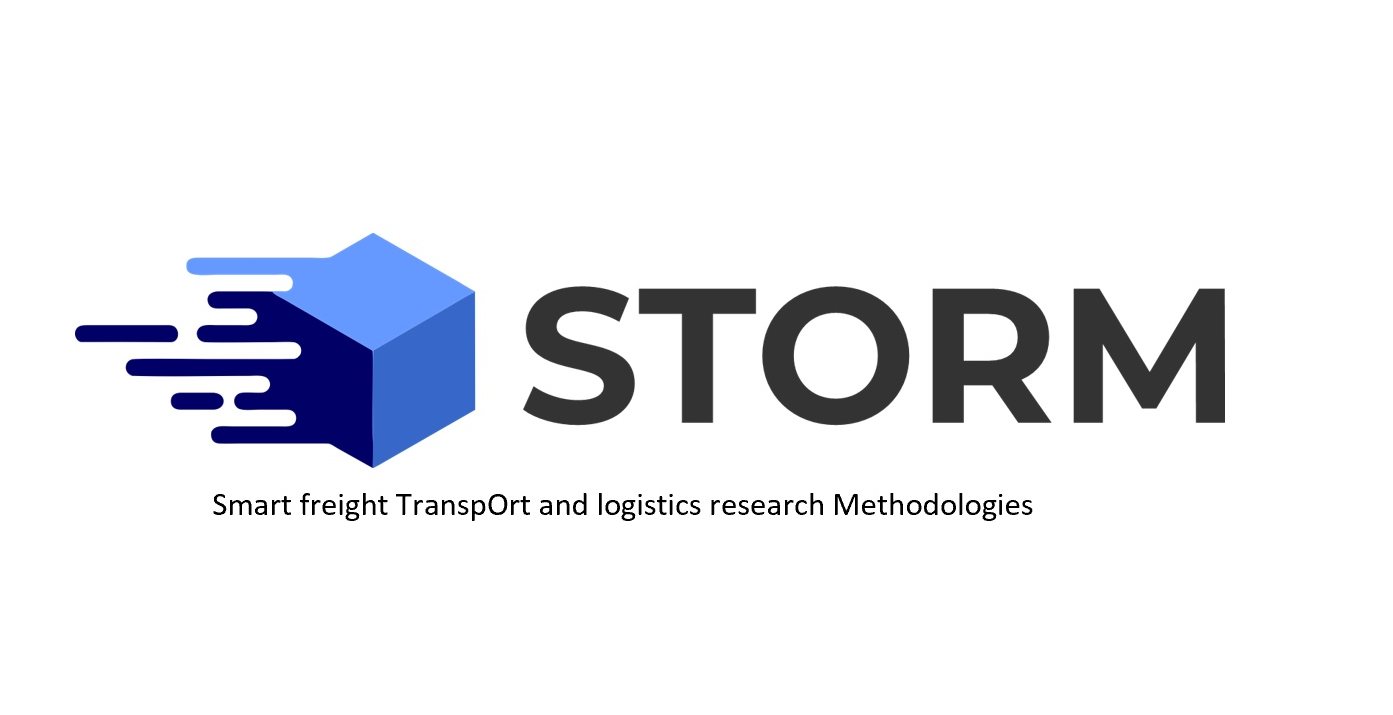 STORM “Smart freight TranspOrt and logistics Research Methodologies”
STORM “Smart freight TranspOrt and logistics Research Methodologies”
Freight transport and logistics are in a period of transformation where the increased availability of digital technologies is rapidly transforming market structures and logistics business models, and the legislative and policy frameworks are moving towards the minimization of the environmental impact of transport. The rapid structural, organisational, and behavioural changes of the sector make existing data, models, and tools lag behind current developments. In response, the STORM project aims to study transformation and structural changes in freight and logistics business structures from different perspectives, focusing on the future challenges and needs of the sector by developing new methods and tools to support digitalization, sustainability transition, and future policy needs. STORM will create a unique platform for dialog with all relevant stakeholder groups to identify key elements for future horizons and directions for freight and logistics research, business and polices. The project will develop new generation, beyond current state-of-the-art transport data analytics, models and solutions through industry use cases and contribute to sector innovations and competitiveness. STORM output will be a toolbox bringing together tools and methods centring on Big Data, data fusion, and agent-based modelling applied to electrified freight transport concepts and new collaborative, digitised logistics systems. It responds to the emerging needs of transport researchers, planners, and policy makers and it will generate knowledge for the implementation of innovative transport policies. STORM will provide advanced methods and tools to enable new opportunities and business models for the sector through targeted information and knowledge sharing with structured support and collaboration in research, policy analysis, and transport planning, to fulfil the ultimate goal of facilitating the sustainable transformation for the business and future public policies.
More information: https://project-storm.eu/; https://cordis.europa.eu/project/id/101006700
ECTRI Member VTT (coordinator, Finland) and FhG (Germany) are partners in the consortium. ECTRI is contributing to the STORM project as Advisory Board member.
TANGENT “Enhanced Data Processing Techniques for Dynamic Management of Multimodal Traffic Flows”
Transport is at a crossroad. The sector is paved with disruptive technologies and mobility solutions designed to revolutionise transport networks and traffic management. The EU-funded TANGENT project will develop new tools to improve traffic operations in a coordinated way, considering automated and non-automated vehicles, passengers, and freight transport. TANGENT will research advanced techniques on modelling and simulation, such as simulation models for future demand and supply of transport; optimisation techniques for balancing demand flows; and modelling users’ travel behaviour. A set of applications for decision-making support will be delivered to provide traffic management recommendations and to support transport authorities in their design of network-wide optimal strategies. Case studies will be conducted in France, Portugal, the UK and Greece.
More information: https://cordis.europa.eu/project/id/955273
ECTRI Member DEUSTO (coordinator, Spain) and NTUA (Greece) are partners in the consortium.
BOOSTLOG “Boosting impact generation from research and innovation on integrated freight transport and logistics system”
In an intensively changing economic landscape, the European freight transport and logistics R&I sectors need a set of supportive tools to keep up with innovative developments in interconnected fields. The EU-funded BOOSTLOG project aims at enhancing the quality of services in these sectors. Its first focus will be on increasing visibility and supporting valorisation of R&I project results, outcomes and implementation cases in the freight transport and logistics field. In parallel, the project will develop and implement valorisation strategies and guidelines to speed up the technological and organisational innovation uptake. Ultimately, BOOSTLOG will suggest improved use of R&I investments and will reinforce R&I impacts communication and stakeholders’ engagement in the innovation process.
More information: https://www.etp-logistics.eu/boostlog/; https://cordis.europa.eu/project/id/101006902
ECTRI Member FhG-IML (Germany) is partner in the consortium.
FUTURE-HORIZON “Future on-/off-road transport and mobility research, cross-border cooperation strategies, realization actions and procurement processes”
What research and innovation programmes can further facilitate a sustainable and efficient road transport system in Europe? To answer this question, the EU-funded FUTURE-HORIZON project will study how to best support the European Road Transport Research Advisory Council (ERTRAC), future Horizon Europe partnerships and the European Commission to identify related future research needs. Specifically, it will explore opportunities for complementing strategic planning of the road transport research ecosystem in Europe, focusing on North and South America as well as Asia and Africa. The project will map road transport research strategies in established markets abroad and compare these to the European strategies. The findings will assist transport stakeholders across Europe to address issues related to sustainable mobility.
More information: https://www.2zeroemission.eu/research-project/future-horizon/; https://cordis.europa.eu/project/id/101006598;
ECTRI Member FhG-IML (Germany) is partner in the consortium.
 URBANIZED “Modular and Flexible solutions for urban-sized zero emissions last mile delivery and services vehicles”
URBANIZED “Modular and Flexible solutions for urban-sized zero emissions last mile delivery and services vehicles”
The management of logistics flows in urban areas becomes a challenging process within the context of intensive urbanisation. There is a growing need for sustainable mobility solutions that combine transport flexibility and high performance, low operational costs, safety and health security. The EU-funded URBANIZED project will introduce the next generation of modular vehicle architectures for urban-sized commercial e-vehicles. Focusing on a holistic design approach working at systems, vehicle and fleet level, URBANIZED will offer a comprehensive modular solution for last-mile delivery of retail, e-commerce, courier and post, HoReCa and other urban on-demand services.
More information: https://urbanized.eu/; https://cordis.europa.eu/project/id/101006943
ECTRI Members CERTH-HIT (Greece) and VUB (Belgium) are partners in the consortium.
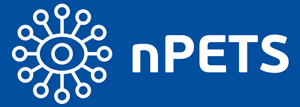 nPETS “Nanoparticle emissions from the transport sector: health and policy impacts”
nPETS “Nanoparticle emissions from the transport sector: health and policy impacts”
Air pollution in European cities is still threatening human health, even though EU emission directives have been sharpened over the last 25 years. Adverse health effects of airborne particles are strongly linked to their size. A major fraction of outdoor ultrafine particles is traffic generated from road, rail, air, and sea transportation. The story that nPETS aims to communicate is the life of the sub 100 nm emissions from its creation to its potential path to human beings and animals. The nPETS consortium aims to improve the knowledge of transport generated exhaust and non-exhaust nanoparticle emissions and their impacts on health and new public policies.
It aims to monitor and sample with state-of-the-art particle instruments the sub 100 nm transport generated emissions from shipping, road, rail, and aviation both in field and controlled laboratory environments. Both aged and fresh aerosols will be considered, including primary and secondary volatile and non-volatile particles. Characterizing the emissions will be done from shipping, road, rail, and aviation by linking their sizes, chemical compositions, and morphologies to its specific emission sources such as engines, brakes, clutches, and tires to increase the understanding of the mechanisms behind adverse risks posed by different types and sources of the identified sub 100 nm particles. The effects of nanoparticles from various transport modes and fuels, as well as specific emission sources, will be compared with a focus on markers of relevance for carcinogenesis and inflammation. Living cells will be exposed to collected and real-world primary and aged aerosols as well as primary and aged aerosols generated in the laboratory.
Furthermore, it also aims to evaluate the possible future impact of new policies in this area on public health and linking the impacts with specific emission sources. This should lead to an understanding and quantification of the risks posed by different types and sources.
More information: https://www.npets-project.eu/;https://cordis.europa.eu/project/id/954377
ECTRI Member CERTH-HIT (Greece) is partner in the consortium.
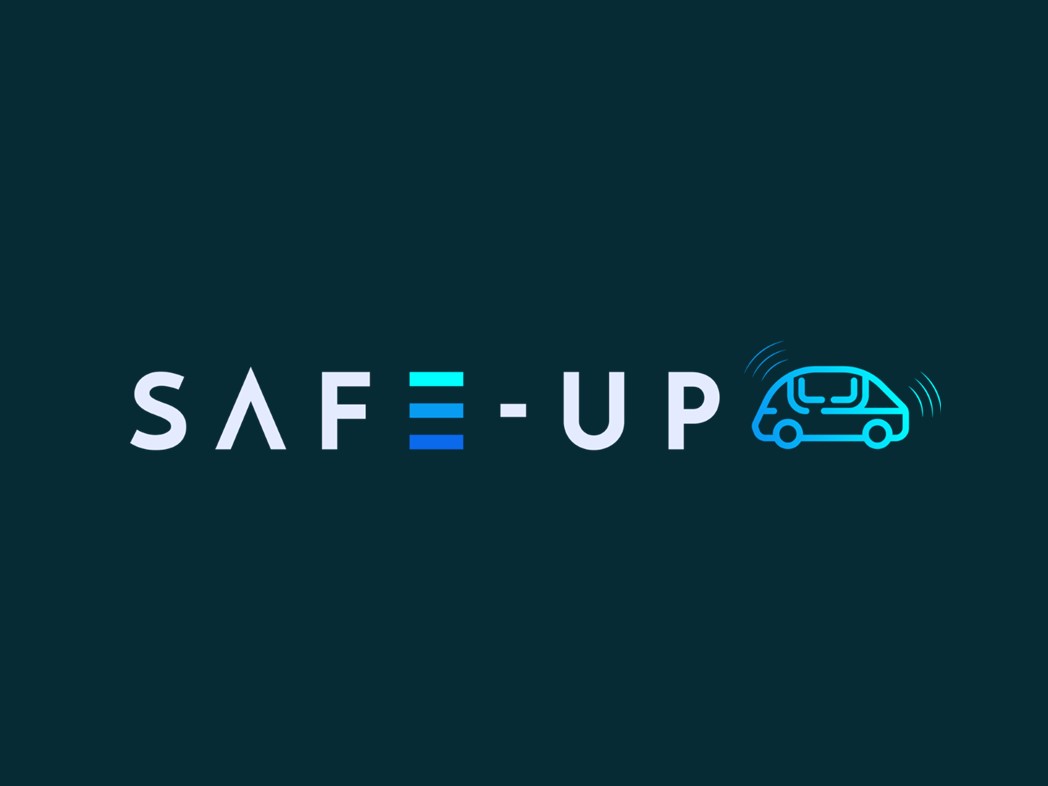 SAFE-UP “Proactive SAFEty systems and tools for a constantly UPgrading road environment”
SAFE-UP “Proactive SAFEty systems and tools for a constantly UPgrading road environment”
Future transport and mobility will be disrupted by innovations in Connected Automated Vehicles (CAVs), in which safety will be of the highest priority. SAFE-UP aims to proactively address the upcoming safety challenges by developing innovative technologies, testing and assessment methods. SAFE-UP is based on 3 key pillars: i) future safety-critical scenarios, ii) new safety technologies, and iii) novel safety assessment methodologies. Future safety-critical scenarios will be designed and analysed in a highly automated and mixed traffic environment in a traffic simulation platform. Based on these scenarios, new safety technologies for active and passive systems will be developed, resulting in 4 Demos. The passive safety system of Demo 1 will include restraint and occupant monitoring technologies for new seating positions. Three active safety system prototypes (all on-vehicle, one of them also including on-user and infrastructure) will be developed. Demo 2 will enhance the interaction between vehicles and VRUs under bad weather conditions while Demo 3 will integrate advanced intervention functions to avoid critical events. Demo 4 will consist of a safety solution based on C-ITS to enable timely warning provisions. To prove the overall benefits, new safety assessment methodologies will be thoroughly designed. The SAFE-UP consortium is another major asset, consisting of key players in mobility across the entire value chain: advanced OEMs, leading suppliers & industry, and academia. The new technologies will reduce fatalities by covering pedestrians, cyclists and Powered Two Wheelers in urban areas through active safety systems and cars in non-urban through passive safety technologies, which will impact 64% of all road fatalities. SAFE-UP will also develop targeted education and training schemes for fostering the implementation of automated driving functions, while also focusing on raising awareness of future road safety challenges.
More information: https://www.safe-up.eu/; https://cordis.europa.eu/project/id/861570
ECTRI Member CERTH-HIT (Greece) is partner in the consortium.
 SENATOR “Smart Network Operator Platform enabling Shared, Integrated and more Sustainable Urban Freight Logistics”
SENATOR “Smart Network Operator Platform enabling Shared, Integrated and more Sustainable Urban Freight Logistics”
The main objective of SENATOR project is to provide 4 governance schemes for urban planning policies: User demand planning, Transport planning, Freight & Logistics planning and City infrastructure focused, bringing together relevant stakeholders in urban freight logistics within one multi-collaborative framework based on a new urban logistics model to attend the requirements of the ‘on demand economy’. As a result, urban governability will be enhanced considering i) citizen empowerment; ii) integration of new sustainable transport modes; iii) efficient logistics through digitalisation and; iv) urban space management. This urban logistics model demands another role under new planning processes. SENATOR proposes a smart network operator, as integrator, based on a multi-level system model, which enables load pooling and offers a better decision-making and real time control process.
SENATOR will deliver an innovative “control tower” approach, allowing dynamic planning and ensuring operative optimisation through a fluent relationship between urban planners, urban freight logistics players and citizen engagement. This will be actuated in a platform which balances demand of freight & delivery services with available vehicle load for on-demand city needs. The main concept behind the project idea is to create a new urban logistic model focused on the four urban layers (end-receiver, transport, logistics and infrastructure). This will provide integrated models for urban planning policies. This urban logistics model creates a new role, the smart network operator that boost collaboration among all freight urban logistic agents. Based on a multi-level system model for urban space management promoting sustainability and shared-connected freight and delivery services in cities, SENATOR will optimise the satisfaction of all stakeholders’ needs through empowering their decision-making capacity & prioritising urban mobility by an integrated approach.
More information: https://www.senatorproject.eu/; https://cordis.europa.eu/project/id/861540
ECTRI Member DEUSTO (Spain) is partner in the consortium.
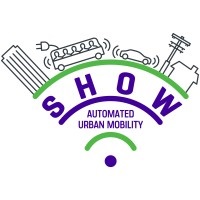 SHOW “SHared automation Operating models for Worldwide adoption”
SHOW “SHared automation Operating models for Worldwide adoption”
SHOW aims to support the migration path towards affective and persuasive sustainable urban transport, through technical solutions, business models and priority scenarios for impact assessment, by deploying shared, connected, cooperative, electrified fleets of autonomous vehicles in coordinated Public Transport (PT), Demand Responsive Transport (DRT), Mobility as a Service (MaaS) and Logistics as a Service (LaaS) operational chains in real-life urban demonstrations in 5 Mega, 6 Satellite and 3 Follower Pilots taking place in 20 cities across Europe. By deploying a fleet of 74 L4/L5 AVs of all types (buses, shuttles, pods, robo-taxis, automated cars connected with MaaS and cargo vehicles) and for all transport operators (passengers, cargo and mixed transport) in both dedicated lanes and mixed traffic, connected to a wide range of supporting infrastructure (5G, G5, IoT, etc.) and operating under traffic speeds ranging from 18 to over 50km/h, it aims to satisfy 7 UCs families and 22 single UCs; that together cover all urban automated mobility needs and wants of the stakeholders (i.e. as reported within SPACE initiative and in ERTRAC roadmap). Project pilots will last for 24 months, with real service seamless operation in each pilot site lasting at least 12 months and will transport with AV fleets over 1,500,000 passengers and 350,000 units of goods. Being the bigger and more holistic ever real life CCAV urban demonstration initiative, it is user led (by UITP) and realised by a Consortium of 69 Partners, 6 third parties and with the additional support of 60 stakeholders (connected through LoS, including major stakeholder Associations) and twinning actions with 11 organisations the US, S. Korea, Australia, China, Taiwan and Singapore.
More information: https://show-project.eu/; https://cordis.europa.eu/project/id/875530
ECTRI Member CERTH-HIT (coordinator, Greece) and AIT (Austria), CDV (Czech Republic), DLR (Germany), VTI (Sweden), VTT (Finland) and VUB (Belgium) are partners in the consortium.
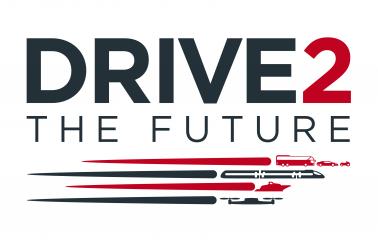 Drive2TheFuture “Needs, wants and behavior of ‘Drivers’ and automated vehicle users today and into the future”
Drive2TheFuture “Needs, wants and behavior of ‘Drivers’ and automated vehicle users today and into the future”
Drive2theFuture aims to prepare “drivers”, travelers and vehicle operators of the future to accept and use connected, cooperative and automated transport modes and the industry of these technologies to understand and meet their needs and wants. To achieve this, it models the behavior of different automated vehicle “drivers” & prognoses acceptance for several automated driving scenarios, develops specialized training tools (3D automated scenarios for VR-goggles, web applications and social media platforms), content, optimized HMI for “driver”-vehicle handovers, CEA and MCA studies for selection of most favorable automated functions realisation and then demonstrates them in 12 Pilots across Europe and in 3 major events. Pilots cover all automated transportation modes (Automated car, PTW, truck, bus, mini-bus, rail, workboat and drones) and involve driving/riding/rail simulators, VR/AR simulation toolkits, test tracks and real world environments, in which over 1000 AV drivers/passengers, 200 AV operators and 20000 involved citizens experience automation from few hours to 6 months. KPI’s, such as user acceptance, user awareness/appreciation of actual automated function performance (gap between expectations and reality), automated operation efficiency and cost effectiveness, are defined and will be followed through subjective and objective (conflicts analysis) tools. The automated vehicles “driver”/rider/operator behavior will be modelled and due emphasis is given to cross fertilization issues among different modes. The project will also research relevant legal, ethical and operational issues (with strong user involvement through FIA and 4 of its Clubs, UITP and IRU), the interaction between automated vehicles and relevant MaaS and will issue guidelines, policy recommendations and a user acceptance path Roadmap to Automation. This challenging task is undertaken by 31 Partners from 13 European countries; through 10 interrelated work packages, over 36 months.
More information: http://www.drive2thefuture.eu/; https://cordis.europa.eu/project/id/815001
ECTRI Member CERTH-HIT (coordinator, Greece) and AIT (Austria), CDV (Czech Republic), CTL-Sapienza (Italy), DLR (Germany), NTUA (Greece), TØI (Norway), Université Gustave Eiffel (France), VTI (Sweden), and VUB (Belgium) are partners in the consortium.
TrACE / EXCELSIOR “Transport Analytics Centre of Excellence in Cyprus”
Transport is globally one of the most fundamental sectors because it influences the economy of a country and the quality of life of its citizens, whilst on the other hand it causes significant consumption of resources, environmental pollution and loss of human lives. The Ministry of Transport, Communications and Works (MTCW) of Cyprus aims to establish a Transport Analytics Centre of Excellence (TrACE), which is in full alignment with the Cyprus Smart Specialization Strategy (CySSS). TrACE aims to make a step change in the culture of research and innovation in Cyprus, and hence contribute to the Government’s strategic goal for restructuring the economy and society. The mission of TrACE will be to promote high level research and innovation through addressing transport-related scientific, technological, educational and industrial issues with a focus on competiveness and entrepreneurship. This will be achieved by by integrating the capacities of the public sector, industry, academia, NGOs and citizens. TrACE is planned to be divided into four research units based on the priority themes defined by CySSS: Transport Planning/Engineering/Policy; Intelligent Transport Systems; Green Transport; and Marine Transport/Blue Economy. In addition, the Centre will involve two horizontal units: the Data Analytics Unit and the Entrepreneurship and Innovation Unit. Research outputs will address societal challenges for sustainable transport. This proposal describes a one-year project for creating a Business Plan (Stage 1) and contains information about the medium and long-term plan for the Centre (Stage 2). TrACE will be established through a true joint-venture between: the MTCW, the University of Leeds, UK, (UNIVLEEDS); the Institute of Transportation Systems (DLR-TS), Germany; the University of Cyprus (UCY); and the Cyprus International Institute of Management (CIIM).
A work plan has been devised which splits this one year project into six WPs for delivering a robust Business Plan.
More information: https://cordis.europa.eu/project/id/763568
ECTRI Member DLR-TS (Germany) is partner in the consortium.
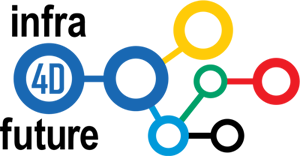 Infra4DFuture “Infrastructure for the future”
Infra4DFuture “Infrastructure for the future”
Infra4Dfuture will develop a demand-driven overarching strategy and coordination mechanism for the modernization of transport infrastructure including a shared strategic vision on future infrastructure capabilities and common pathways for innovation development and implementation.
Facing a variety of emerging challenges, such as climate change, resilience, ageing infrastructure, maintenance, digitalisation, automation, energy and electrification, the National Transport Infrastructure Authorities (NTIA) have urgent requirements for infrastructure innovation. In view of the long cycle times in infrastructure management and the rapid mounting pressure from these challenges, there is a need for fast delivery of ready-to-implement, cost-effective innovative solutions matching the requirements of the NTIA that jointly build the TEN-T network.
The infra4Dfuture consortium encompasses 20 partners from 17 countries, 19 of them being NTIA, joining forces to develop:
• a strategic coordination mechanism aiming to deliver a concerted cooperation and collaboration across a portfolio of relevant European and national innovation programmes and initiatives;
• a shared strategic vision on future infrastructure capabilities, each capability encompassing a series of innovation focus areas for innovation.
infra4Dfuture is based on a sound and coherent consultation and dialogue process with relevant stakeholders. This process will be structured in a sequence of strategic, decision-making conferences and a supporting, tactical sequence of expert workshops and regional events. These will culminate in the founding of the infra4Dfuture Stakeholder Platform for Infrastructure Innovation and Implementation (ISPIII) at the TRA 2020. ISPIII will ensure a continuance of the coordination mechanism and shared vision beyond the duration of the action. Follow-up ISPIII events will take place at the consecutive biannual TRA conferences.
More information: http://www.i4df.eu/; https://cordis.europa.eu/project/id/824269
ECTRI Member RWS (coordinator, The Netherlands) and CERTH-HIT (Greece) are partners in the consortium.
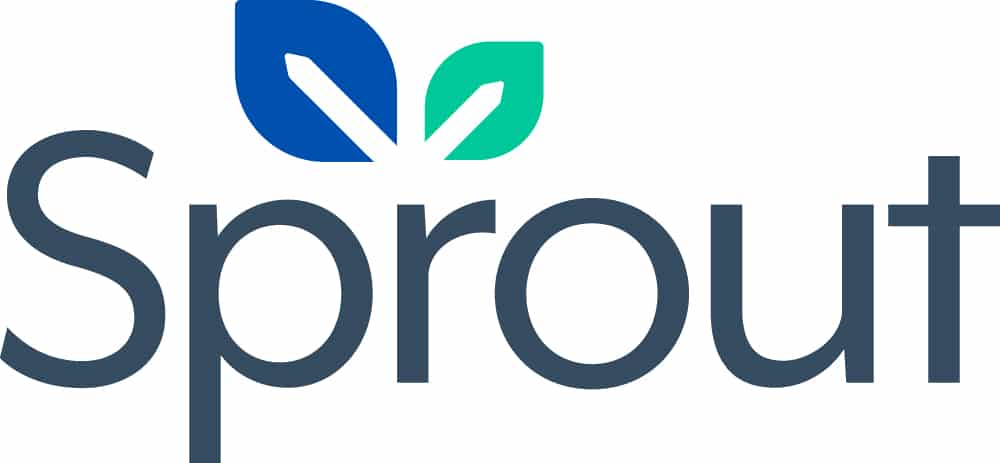 SPROUT “Sustainable Policy RespOnse to Urban mobility Transition”
SPROUT “Sustainable Policy RespOnse to Urban mobility Transition”
SPROUT provides a new city-led innovative and data-driven policy response to address the impacts of emerging mobility patterns, digitally-enabled operating & business models, and transport users’ needs. Starting from an understanding of the transition in urban mobility, the project will define the impacts on the sustainability and policy level. It will also harness these through a city-led innovative policy response. The aim is to build cities’ data-driven capacity to identify, track and deploy innovative urban mobility solutions. The findings will help navigate future policy. To achieve its goals, SPROUT is creating an Open Innovation Community on Urban Mobility Policy and will employ 6 city pilots and 7 validation cities with real-life policy challenges faced as a result of urban mobility transition in both passenger and freight transport.
More information: https://sprout-civitas.eu/; https://cordis.europa.eu/project/id/814910
ECTRI Members CERTH-HIT (Greece), UPM (Spain) and VUB (Belgium) are partners in the consortium.
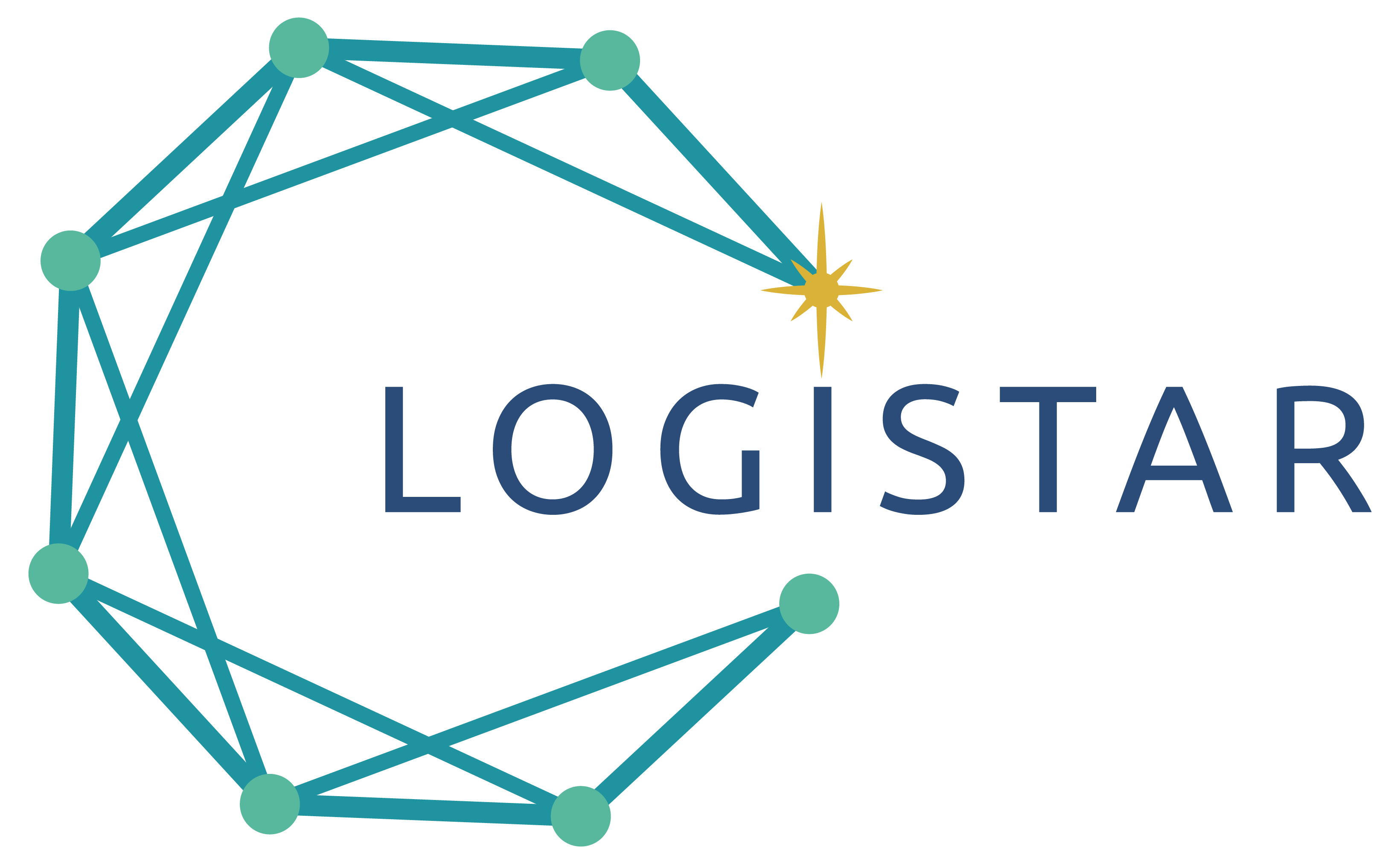 LOGISTAR “Enhanced data management techniques for logistics planning and scheduling in real time”
LOGISTAR “Enhanced data management techniques for logistics planning and scheduling in real time”
The EU faces the challenge to maintain and increase its economic growth and cope with the problem of freight transport efficiency in Europe. Integration of transport volumes and modes, better use of capacity, flexibility, resource efficiency and cooperation between all actors along the logistic chain are required. Aligned with the European policies and the ALICE roadmap, LOGISTAR objective is to allow effective planning and optimizing of transport operations in the supply chain by taking advantage of horizontal collaboration, relying on the increasingly real-time data gathered from the interconnected environment. For this, a real-time decision making tool and a real-time visualization tool of freight transport will be developed, with the purpose of delivering information and services to the various agents involved in the logistic supply chain, i.e. freight transport operators, their clients, industries and other stakeholders such as warehouse or infrastructure managers. LOGISTAR will address several advances beyond the State of the Art in the interdisciplinary field of the smart algorithms for data processing: Artificial Intelligence focused on prediction, parallel hybrid metaheuristics for optimization, automated negotiation techniques, and constraint satisfaction problem solving techniques. The resulting platform will outperform other market products and services such as Freight Exchange Systems, Collaborative Platforms, Transport Control Towers or Routing Systems. LOGISTARS involves RTD organisations (DEUSTO, UCC, CSIC), technology developers (DNET, SWC), consultancy firms (MDST, PRESTON), ICT services developers (SAG, DBH, GENEGIS) and stakeholders from different stages of the supply chain (AHLERS, ZAILOG, NESTLÉ, PLADIS, CODOGNOTTO).
More information: https://logistar-project.eu/; https://cordis.europa.eu/project/id/769142
ECTRI Member DEUSTO (coordinator, Spain) is partner in the consortium.
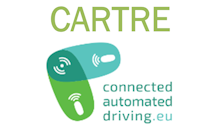 CARTRE “Coordination of Automated Road Transport Deployment for Europe”
CARTRE “Coordination of Automated Road Transport Deployment for Europe”
Automated Road Transport (ART) is seen as one of the key technologies and major technological advancements influencing and shaping our future mobility and quality of life. The ART technology encompasses passenger cars, public transport vehicles, and urban and interurban freight transport and also extends to the road, IT and telecommunication infrastructure needed to guarantee safe and efficient operations of the vehicles. In this framework, CARTRE is accelerating development and deployment of automated road transport by increasing market and policy certainties. CARTRE supports the development of clearer and more consistent policies of EU Member States in collaboration with industry players ensuring that ART systems and services are compatible on an EU level and are deployed in a coherent way across Europe. CARTRE includes a joint stakeholder’s forum in order to coordinate and harmonise ART approaches at European and international level. CARTRE creates a solid knowledge base of all European activities, supports current activities and structures research outcomes by enablers and thematic areas. CARTRE involves more than 60 organisations to consolidate the current industry and policy fragmentation surrounding the development of ART.
More information: https://trimis.ec.europa.eu/project/coordination-automated-road-transport-deployment-europe; https://cordis.europa.eu/project/id/724086
ECTRI Members CERTH-HIT (Greece), DLR (Germany), RWS (The Netherlands), Université Gustave Eiffel (France) and VTT (Finland) are partners in the consortium. ECTRI is associated partner.
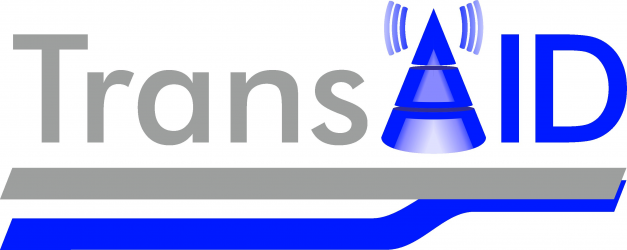 TransAID “Transition Areas for Infrastructure-Assisted Driving”
TransAID “Transition Areas for Infrastructure-Assisted Driving”
As the introduction of automated vehicles becomes feasible, even in urban areas, it will be necessary to investigate their impacts on traffic safety and efficiency. This is particularly true during the early stages of market introduction, where automated vehicles of all SAE levels, connected vehicles (able to communicate via V2X) and conventional vehicles will share the same roads with varying penetration rates. There will be zones and situations on the roads where high automation can be granted, and others where it is not allowed or not possible due to missing sensor inputs, high complexity situations, etc. In the areas where those zones merge many automated vehicles will change their activated level of automation. Therefore, we refer to these areas as “Transition Areas”. TransAID will develop and demonstrate traffic management procedures and protocols to enable smooth coexistence of automated, connected and conventional vehicles especially at Transition Areas. A hierarchical approach will be followed where control actions will be implemented at different layers including centralised traffic management, infrastructure and vehicles. First, simulations will be performed to find optimal infrastructure-assisted management solutions to control connected, automated and conventional vehicles at Transition Areas, taking into account traffic safety and efficiency metrics. Then, communication protocols for the cooperation between connected/automated vehicles and the road infrastructure are developed. Measures to detect and inform conventional vehicles will also be addressed. The most promising solutions will be implemented as real world prototypes and demonstrated under real urban conditions. Finally, guidelines for advanced infrastructure-assisted driving will be formulated. The guidelines will also include a roadmap defining activities and needed upgrades of road infrastructure in the upcoming 15 years in order to guarantee a smooth coexistence of conventional, connected and automated vehicles.
More information: https://www.transaid.eu/; https://cordis.europa.eu/project/id/723390
ECTRI Member DLR (coordinator, Germany) and CERTH-HIT (Greece) are partners in the consortium.
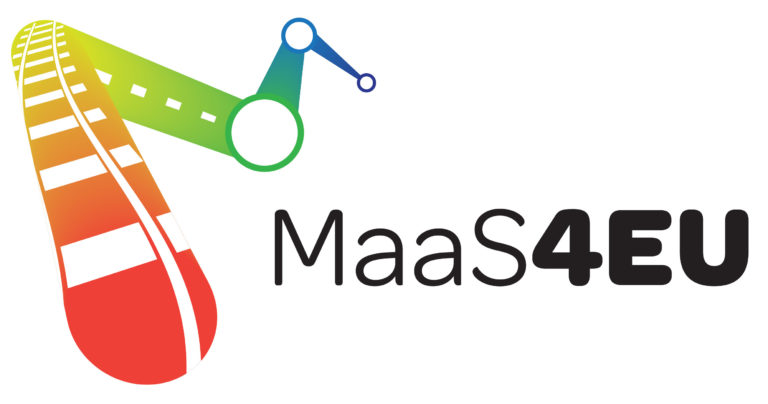 MaaS4EU “End-to-End Approach for the Deployment of Intermodal Mobility-as-a-Service”
MaaS4EU “End-to-End Approach for the Deployment of Intermodal Mobility-as-a-Service”
With the projected growth in transport demand, the current modus operandi in transport supply is deemed unsustainable and generates the need for innovative services that could support seamless mobility and a shift from car-ownership to usership. An emerging trend towards this direction is the integration of on-demand modes in conjunction with public transport, leading to the Mobility-as-a-Service (MaaS) concept. MaaS is a user-centric, intelligent mobility distribution model, in which users’ needs are met via a single platform and are offered by a service provider, the mobility operator. Although activities in this field are ongoing, at present there are no established frameworks and quantifiable evidence about MaaS costs and benefits, users’ needs, as well as its influence on travel patterns and car ownership of various user groups. Against this background the main goal of MaaS4EU is to provide quantifiable evidence, frameworks and tools, to remove the barriers and enable a cooperative and interconnected EU single transport market for the MaaS concept, by addressing challenges at 4 levels, (1) business, (2) end-users, (3) technology and (4) policy. This will be achieved by defining sustainable business models that support the cooperation across transport stakeholders, understanding user needs and choices, implementing the required technological infrastructure (a MaaS mobility hub) and identifying the enabling policy and regulatory frameworks. The project will provide quantifiable evidence about MaaS costs and benefits in 3 real-life, complementary pilot cases, demonstrating the concept in urban, intercity and cross-border trips at 3 EU areas (UK, LUX-DE, HU). The consortium disposes all necessary competences and has been formed to be able to handle all tasks involved in the project, consisting of 17 partners from 9 countries, among them leading industries, renowned research institutions, transport authorities and operators, consultants and one ministry of transport.
More information: http://www.maas4eu.eu/; https://cordis.europa.eu/project/id/723176
ECTRI Member BME (Hungary) is partner in the consortium.
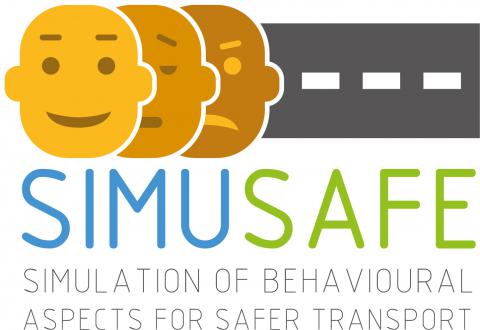 Simusafe “Simulator of behavioral aspects for safer transport”
Simusafe “Simulator of behavioral aspects for safer transport”
Road transport is known to be the most dangerous of all transport modes and poses a major societal challenge for EU. It has been claimed that 90% of road-traffic crashes are caused by driver error, being a significant factor in traffic accidents. Improving road safety means understanding the individual and collective behavior of actors involved (drivers, two wheelers, pedestrians) and their interaction between themselves and safety-related systems and services. The goal of SIMUSAFE (SIMUlator of Behavioral Aspects for SAFEr Transport) following the FESTA-V model methodology is to develop realistic multi-agent behavioral models in a transit environment where researchers will be able to monitor and introduce changes in every aspect, gathering data not available in real world conditions. Driving simulators of several vehicles (cars, motorcycles, bicycles) and Virtual Reality (for pedestrians) will be used to simulate test environments. This will also enable the evaluation of scenarios which are not possible even with naturalistic driving (dangerous conditions, multiple monitored actors in the same scene, under influence of substances). Data collected from simulations will be correlated with naturalistic driving tests, such that the simulation and model aspects are the closest possible to real world data. From the developed model and collected data, impacting factors causing an event (crash, near-collision, infractions) from the environment and road users will be identified and quantified. Such knowledge will be the base for the development of more effective and pro-active measures for the prevention and mitigation of such factors, with subsequent impact in the safety devices market, regulations and driver education.
More information: https://simusafe.eu/; https://cordis.europa.eu/project/id/723386
ECTRI Member Université Gustave Eiffel (France) is partner in the consortium.
 SaferAfrica “Innovating dialogue and problems appraisal for a safer Africa”
SaferAfrica “Innovating dialogue and problems appraisal for a safer Africa”
SaferAfrica project aims at establishing a Dialogue Platform between Africa and Europe focused on road safety and traffic management issues. It will represent a high-level body with the main objective of providing recommendations to update the African Road Safety Action Plan and the African Road Safety Charter, as well as fostering the adoption of specific initiatives, properly funded. The involvement of Development Banks will ensure the identification of available resources and the definition of suitable schemes of funding. The activity of the Platform will also focus on the reinforcement of the endogenous African capabilities through the dissemination of the EU know-how. Twinning Programs will be set up, besides the conduction of different training activities. Local contexts will be duly taken into account and studies on specific risk factors as well as transferability analysis of measures already tested elsewhere will be conducted. The project activities will be oriented to the “Safe System” approach and grouped in four pillars: Road Safety Knowledge and Data; Road Safety and Traffic management Capacity Review; Capacity Building and Training; Sharing of Good Practices. The platform will work at two levels. A decision making level, run by a Management Board basing its actions on information provided and activities carried out by a technical level, with established Working Groups addressing specific topics. The Management Board will be constituted by prominent institutions like EC, the African Union Commission, Financial Institutions, Regional Economic Communities (UN). The technical level will involve government and research institutions, international and stakeholders organizations (e.g. NGOs), with a fair balance between African and EU partners, even for what concerns responsibilities (e.g. Euro-African work package co-leadership). The Dialogue Platform is intended to constitute a stable body, able to orient road safety policies beyond the project end.
More information: https://cordis.europa.eu/project/id/724029
ECTRI Member CTL Sapienza (coordinator, Italy), LNEC (Portugal) and Université Gustave Eiffel (France) are partners in the consortium.
 TRA VISIONS 2018
TRA VISIONS 2018
The concept of this project is to organise two competitions for transport research awards to be announced at the TRA conference in 2018: – A Young researchers’ competition with the goal of stimulating the interest among young researchers/students in the field of sustainable surface transport. – A competition for senior researchers in the field of innovative surface transport concepts based on results only from EU-funded projects.
More information: https://cordis.europa.eu/project/id/723037
ECTRI Members AIT (Austria), POLITO (Italy) and UNEW (UK) are partners in the consortium.
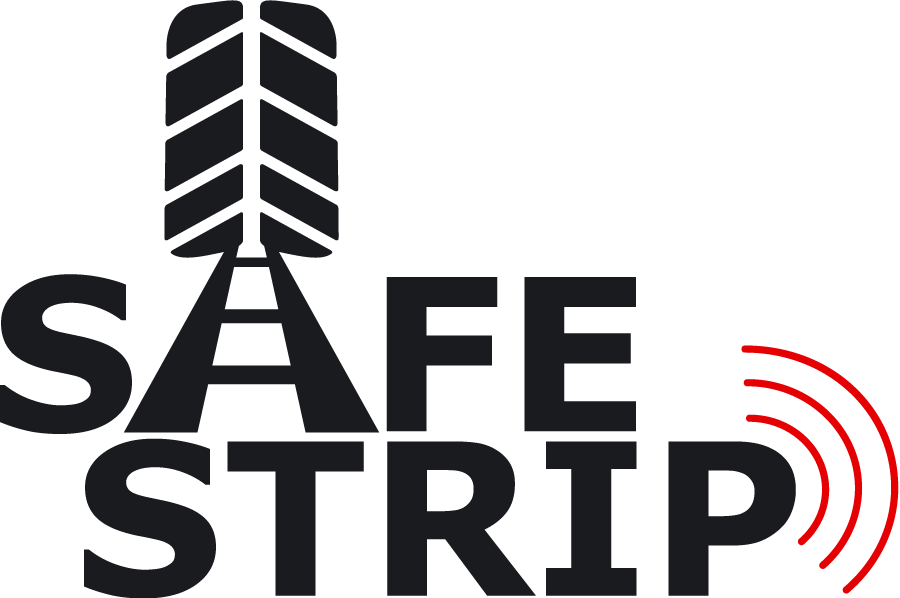 SAFE STRIP “Safe and green Sensor Technologies for self-explaining and forgiving Road Interactive aPplications”
SAFE STRIP “Safe and green Sensor Technologies for self-explaining and forgiving Road Interactive aPplications”
SAFE STRIP aims to introduce a disruptive technology that will achieve to embed C-ITS applications in existing road infrastructure, including novel I2V and V2I, as well as VMS/VSL functions into low-cost, integrated strips markers on the road; to make roads self-explanatory and forgiving for all road users (trucks, cars and vulnerable road users, such as PTWs riders) and all vehicle generations (non-equipped, C-ITS equipped, autonomous), with reduced maintenance cost, full recyclability and added value services, as well as supporting real-time predictive road maintenance functions. The vast potential of SAFE STRIP will be demonstrated through applications for: 1) Cooperative safety functions for enhanced ADAS/ARAS equipped and non-equipped vehicles, 2) Road wear level and predictive road maintenance, 3) Road work zones and railway crossings warnings, 4) Merging/intersection support, 5) Personalised VMS’/VDS’ and Traffic Centre Information, 6) Dynamic trajectory estimation and interface to automated vehicles, whereas it will open a new channel to a vast array of 7) Supportive added value services (such as Virtual Toll Collection and Parking booking and charging). It will be evaluated in a test bed in Spain and in France and 2 closed test tracks in Italy and in real life conditions in Greek and Italian highways, with 4 car and 3 PTW demonstrators. This very challenging task is undertaken by a muldisciplinary and complementary Consortium of 18 Partners from 6 countries, with a good representation of all stakeholders: 1 vehicle OEM (CRF), 1 PTW OEM (Piaggio), 2 system integrators and infrastructure installers (3M & CEA), 2 Tier 1 suppliers (CONTI & VALEO), 1 SME (RELAB), 8 R&D Institutes (CERTH, UNITN, UPAT, FRAUNHOFER/IAO, CNR, CIDAUT, CTI and ICCS) and 2 end users (ATTD and Α22) as beneficiaries, under the umbrella of ERTICO; thus providing further access to all key stakeholders in the area.
More information: https://safestrip.eu/; https://cordis.europa.eu/project/id/723211
ECTRI Member CERTH-HIT (coordinator, Greece) and FHG-IML (Germany) are partners in the consortium.
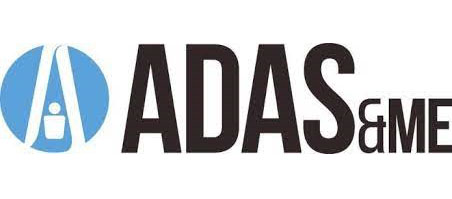 ADAS&ME “Adaptive ADAS to support incapacitated drivers & Mitigate Effectively risks through tailor made HMI under automation”
ADAS&ME “Adaptive ADAS to support incapacitated drivers & Mitigate Effectively risks through tailor made HMI under automation”
ADAS&ME (“Adaptive ADAS to support incapacitated drivers &Mitigate Effectively risks through tailor made HMI under automation”) will develop adapted Advanced Driver Assistance Systems that incorporate driver/rider state, situational/environmental context, and adaptive interaction to automatically transfer control between vehicle and driver/rider and thus ensure safer and more efficient road usage. To achieve this, a holistic approach will be taken which considers automated driving along with information on driver/rider state. The work is based around 7 provisionally identified Use Cases for cars, trucks, buses and motorcycles, aiming to cover a large proportion of driving on European roads. Experimental research will be carried out on algorithms for driver state monitoring as well as on HMI and automation transitions. It will develop robust detection/prediction algorithms for driver/rider state monitoring towards different driver states, such as fatigue, sleepiness, stress, inattention and impairing emotions, employing existing and novel sensing technologies, taking into account traffic and weather conditions via V2X and personalizing them to individual driver’s physiology and driving behaviour. In addition, the core development includes multimodal and adaptive warning and intervention strategies based on current driver state and severity of scenarios. The final outcome is the successful fusion of the developed elements into an integrated driver/rider state monitoring system, able to both be utilized in and be supported by vehicle automation of Levels 1 to 4. The system will be validated with a wide pool of drivers/riders under simulated and real road conditions and under different driver/rider states; with the use of 2 cars (1 conventional, 1 electric), 1 truck, 2 PTWs and 1 bus demonstrators. This challenging task has been undertaken by a multidisciplinary Consortium of 30 Partners, including an OEM per vehicle type and 7 Tier 1 suppliers.
More information: https://www.adasandme.com/; https://cordis.europa.eu/project/id/688900
ECTRI Member VTI (coordinator, Finland), CERTH-HIT (Greece), CTL (Italy), DLR (Germany), FHG-IML (Germany) and Université Gustave Eiffel (France) are partners in the consortium.
![]() AEOLIX “Architecture for EurOpean Logistics Information eXchange”
AEOLIX “Architecture for EurOpean Logistics Information eXchange”
Supply chain visibility supported by easy access to, and exchange and use of relevant and abundant logistics-related information is an important prerequisite for the deployment of pan-European logistics solutions that are needed to increase efficiency and productivity, and to reduce environmental impact. Although there is a proliferative development of logistics-related data stores, information channels, and information management systems and data mining facilities, with both international and intermodal focus, this multitude of solutions exhibits a high degree of fragmentation, due to differences in user requirements, data models, system specification and business models. This legacy situation severely hampers the optimal use of logistics-related information. To overcome this fragmentation and lack of connectivity of ICT-based information systems for logistics decision making, AEOLIX will establish a cloud-based collaborative logistics ecosystem for configuring and managing (logistics-related) information pipelines. This digital business ecosystem will create visibility across the supply chain, enabling more sustainable and efficient transport of goods cross Europe. An essential element of the approach is to ensure that for logistics actors connecting to and using the ecosystem in undemanding and has a low level of complexity. We envision the ecosystem enabling the integration of supply-chain-related transport business processes through logistics software solutions for cloud-based connectivity and interaction, in order to support more efficient collaboration in the logistics supply chain than exists today. By enabling low-complexity and low cost connectivity of local ICT platforms and systems and thereby scalable, trusted and secure exchange of information, AEOLIX will improve the overall competitiveness of goods transport in the supply chain, while simultaneously targeting sustainability from environmental, economic and social perspectives.
More information: https://aeolix.eu/; https://cordis.europa.eu/project/id/690797
ECTRI Member CERTH-HIT (Greece) and UNEW (UK) are partners in the consortium.
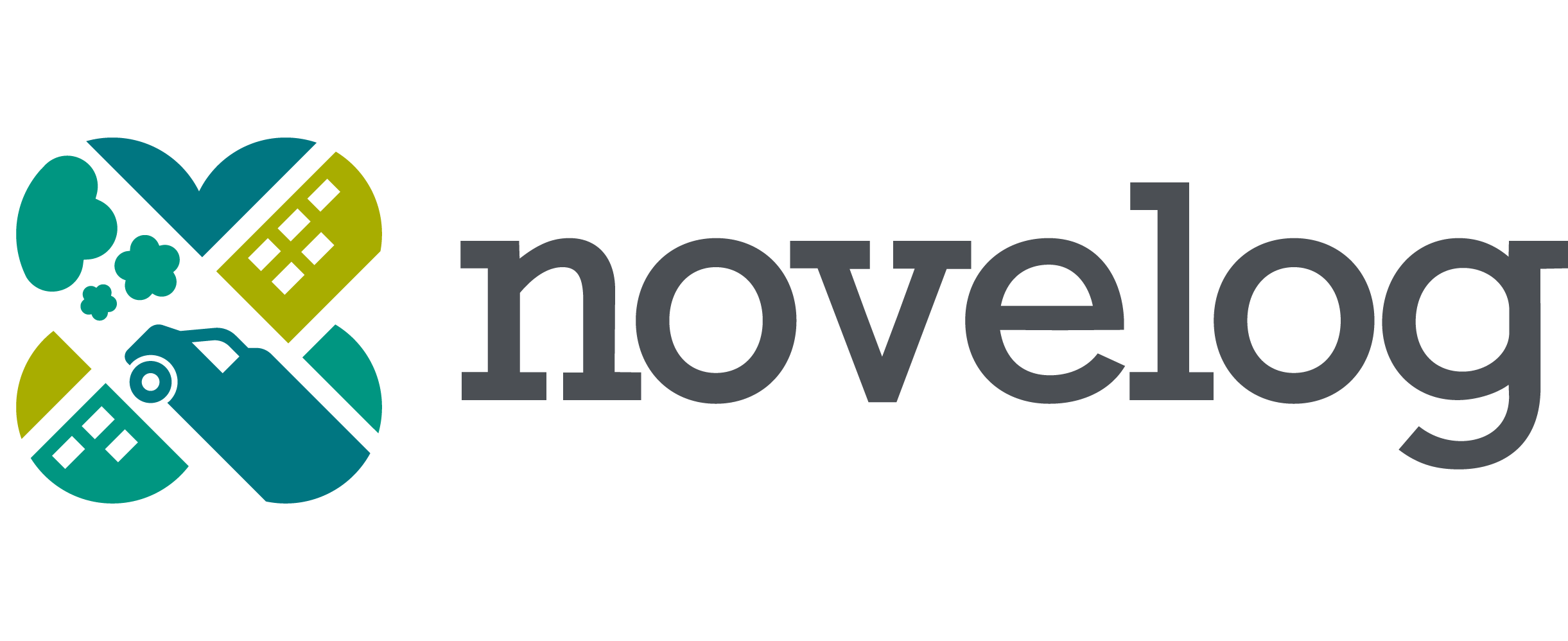 NOVELOG “New cOoperatiVE business models and guidance for sustainable city LOGistics”
NOVELOG “New cOoperatiVE business models and guidance for sustainable city LOGistics”
The salient scope of the proposal is the enabling of knowledge and understanding of freight distribution and service trips by providing guidance for implementing effective and sustainable policies and measures. This shall be achieved through: – the targeted understanding of urban freight and service trips, fostered by data collection on city logistics, – field testing and implementation of representative city logistics measures, – the development and application of a modular, integrated, evaluation framework for the assessment of these measures – the development of a typology between cities and potential city logistics components, and – the provision of guidance to cities, shaping consistent implementation channels for successful solutions, all according to the local needs and constraints.
More information: https://cordis.europa.eu/project/id/636626
ECTRI Member CERTH-HIT (coordinator, Greece), CENIT (Spain) and UNEW (UK) are partners in the consortium.
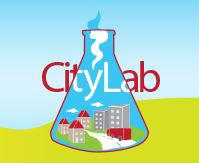 CITYLAB
CITYLAB
The CITYLAB objective is to develop knowledge and solutions that result in roll-out, up-scaling and further implementation of cost effective strategies, measures and tools for emission free city logistics in urban centers by 2030. The project focuses on four axes for intervention due to their present and future relevance and impact related to topic MG-5.2 objectives: 1) Highly fragmented last-mile deliveries in city centers; 2) Large freight attractors and public administrations; 3) Urban waste, return trips and recycling; 4) Logistics facilities and warehouses. The core of CITYLAB is a set of living laboratories, where cities work as contexts for innovation and implementation processes for public and private measures contributing to increased efficiency and sustainable urban logistics. Linkages will be established between the different living labs for exchange of experiences and to develop methodologies for transfer of implementations between cities and between companies.”
More information: https://www.citylab.soton.ac.uk/; https://cordis.europa.eu/project/id/635898
ECTRI Member TØI (coordinator, Norway), DLR (Germany), Université Gustave Eiffel (France) and VUB (Belgium) are partners in the consortium.